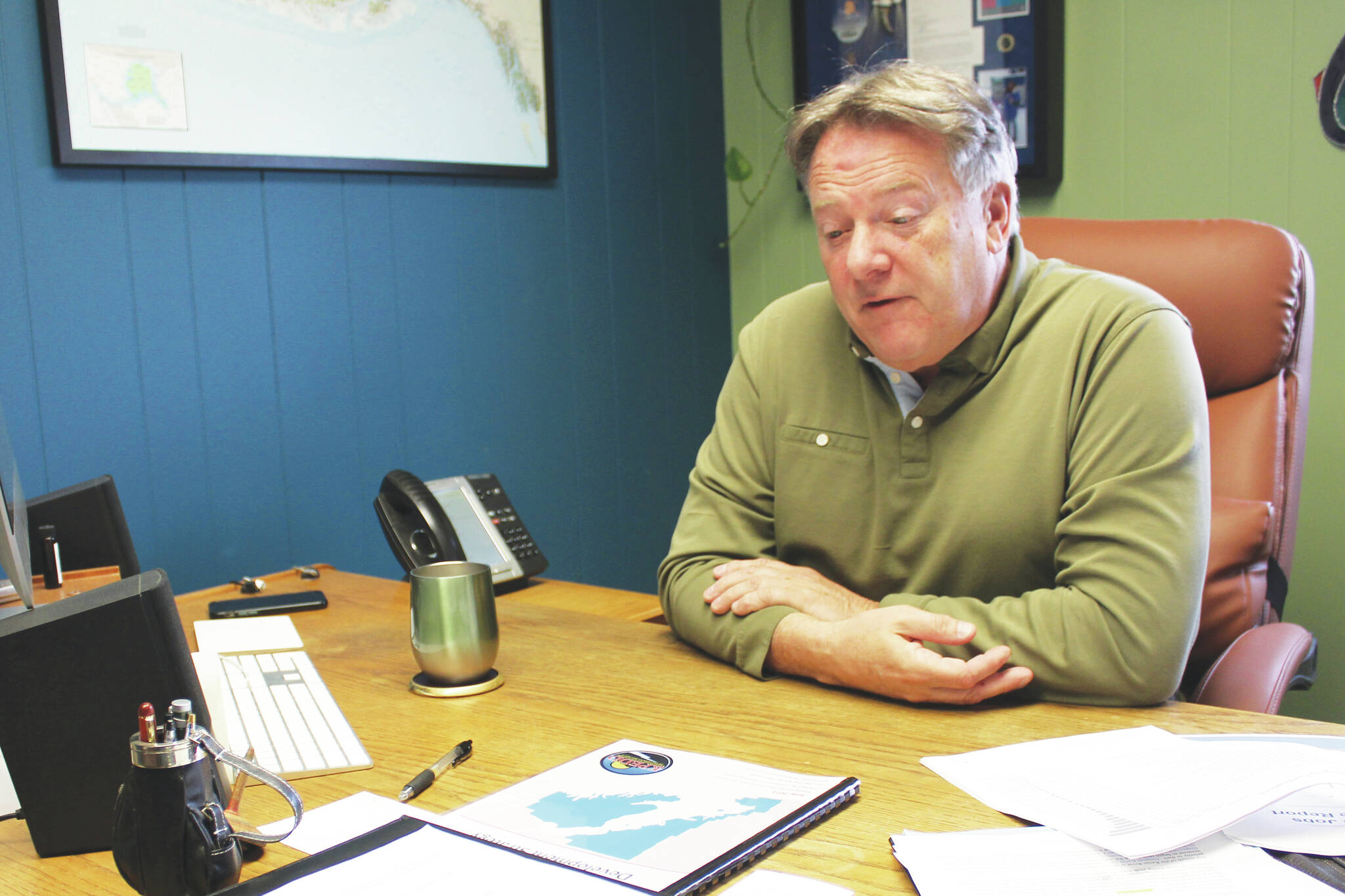The Kenai Peninsula Economic Development District is asking for people on the Kenai Peninsula to help the federal government figure out how fast internet service is on different parts of the peninsula.
Until Sept. 1, people interested in participating can download an app hosted by the Federal Communications Commission that will capture how quickly someone is able to access the internet from where they are. The initiative is part of an FCC effort to figure out which areas around the country lack access to high speed internet services.
That initiative is of interest to KPEDD, which in March assembled a Regional Broadband Taskforce. KPEDD Executive Director Tim Dillon said Wednesday that the organization has been focused on maximizing the amount of money that comes to the Kenai Peninsula through the federal Broadband Equity, Access and Deployment Program.
That program is funded by the federal Infrastructure Investment and Jobs Act, which was signed into law by President Joe Biden last year. U.S. Sens. Lisa Murkowski and Dan Sullivan have been vocal supporters of federal broadband initiatives, such as $116 million in grants directed to Alaska through the U.S. Department of Agriculture’s ReConnect Program.
The pair spoke Aug. 9 at the Alaska Broadband Summit + Workshop in Anchorage, alongside a group that included other state leaders and Dillon. Dillon said Wednesday that something that stood out to him was the lack of accurate broadband maps, which was identified by the FCC as a concern.
That inaccuracy, Dillon said, translates to a lack of understanding on the part of government entities and service providers about what areas are in need of high speed broadband. That’s why KPEDD is pushing for borough residents to participate in the FCC’s Broadband Data Collection program.
“What we are trying to do is make sure that there is accuracy in those maps, at least on the Kenai Peninsula, if not around the state,” Dillon said.
To share broadband speed data, users can download the speed test app on their phone through the FCC’s website. That app will show how well a user’s mobile and in-home broadband networks perform. The app then sends the results to the FCC’s Measuring Broadband America Program, which collects crowdsourced data on broadband performance across the country.
To those worried about sending the FCC their location through the app, Dillon said the feds probably already have it.
“If you have a phone, an iPad, a computer, the federal government already knows where you are,” Dillon said. “You’re not telling them anything more than what you already have there.”
The efforts come on the heels of a ramped-up focus on broadband both on the Kenai Peninsula and in Juneau.
Gov. Mike Dunleavy earlier this month signed House Bill 363, which established a state Office of Broadband and established a Statewide Broadband Advisory Board. Per a press release from the governor’s office, the bill built on recommendations that came out of a state task force on broadband and gives Alaska a formal way to accept federal broadband funds.
Broadband access expanded on the Kenai Peninsula during the COVID-19 pandemic.
The Kenai Peninsula Borough Assembly dedicated between $1.2 and $2 million of their federal CARES Act money to expand rural internet access on the peninsula. In all, six towers were built in Nikiski, Tyonek, Bear Creek, Nikolaevsk, Ninilchik and Cohoe. The assembly separately approved a communications tower for Summit Lake.
The FCC Speed Test app can be accessed at fcc.gov/broadbanddata/consumers#speed-test.
Reach reporter Ashlyn O’Hara at ashlyn.ohara@peninsulaclarion.com.

